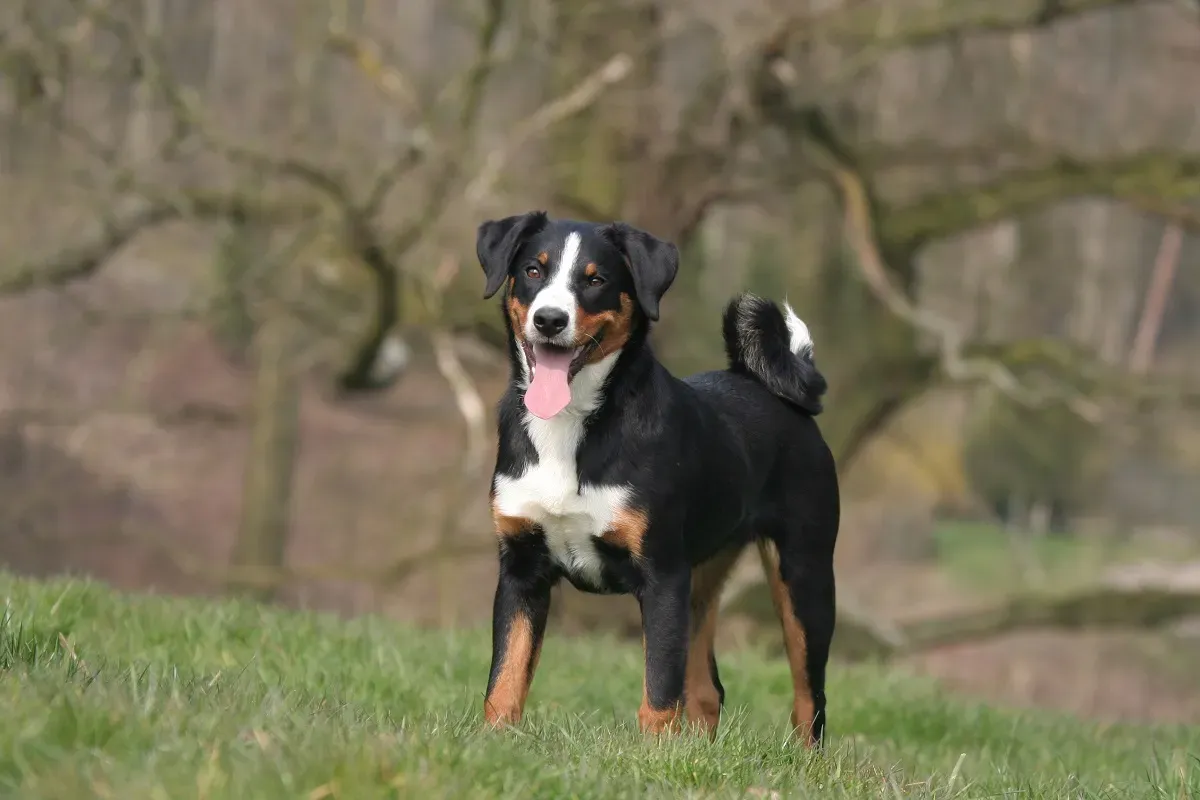
Brittany Dog
Heena
June 10, 2025

The Brittany, often referred to as the Brittany Spaniel (though officially just “Brittany” in the U.S.), is an agile, athletic, and intelligent sporting dog. Originally bred in France for bird hunting, Brittanys are admired for their boundless energy, affectionate nature, and eagerness to please. Whether as a working gun dog or an active family companion, the Brittany fits well into homes that enjoy outdoor life and companionship.
Appearance: Breed Colors & Markings
The Brittany has a medium build with long legs, a compact frame, and a naturally bobbed or short tail. They have a slightly rounded head with expressive eyes and long ears that hang close to the head.
Common Coat Colors:
- Orange & White
- Liver & White
- Tri-color (Liver/White/Orange or Black/White/Tan) — less common
Their coat is flat or slightly wavy and dense enough to protect them in fields and woods. Feathering appears on the legs, ears, and chest.
Age & Life Expectancy
Brittanys typically live between 12 to 14 years, though with proper care, many reach 15+ years. They are generally healthy and resilient dogs.
Personality and Communication
Brittanys are friendly, eager, and sensitive. They form deep bonds with their owners and do best in homes where they are part of daily life. These dogs are highly trainable and alert but may become anxious or destructive if left alone too long.
Key Traits:
- Extremely energetic and playful
- Gentle and affectionate with families
- Naturally social with people and dogs
- May be shy if not properly socialized early
Brittanys thrive on communication through tone, eye contact, and body language. Their sensitive nature means they respond best to positive reinforcement.
Diet: What Do Cairn Terriers Eat?
Brittanys require a well-balanced diet to fuel their energy and keep them lean and healthy.
Recommended Diet Includes:
- High-protein meats: Chicken, turkey, beef, fish
- Carbohydrates: Brown rice, oats, sweet potatoes
- Vegetables: Carrots, peas, green beans
- Healthy fats: Fish oil or flaxseed for coat health
Active Brittanys may need higher calorie intake. Always monitor weight and adjust portions to avoid obesity.
Foods to Avoid:
- Chocolate
- Grapes/raisins
- Onions and garlic
- Processed or fatty foods
Always provide fresh, clean water.
What to Expect When Caring for a Brittany
Health
Brittanys are a relatively healthy breed, but they can be prone to:
- Hip Dysplasia
- Epilepsy
- Hypothyroidism
- Ear Infections (due to floppy ears)
- Canine Discoid Lupus (skin disorder) – rare
Regular vet check-ups, dental care, and vaccinations help maintain long-term health. Screening from reputable breeders reduces the risk of genetic conditions.
Grooming
Brittanys are easy to groom thanks to their low-maintenance coat.
Grooming Tips:
- Brush 1–2 times per week to remove dirt and reduce shedding
- Bathe once every 4–6 weeks or as needed
- Check and clean ears weekly to prevent infections
- Trim nails every 3–4 weeks
- Brush teeth 2–3 times per week
Their coat doesn’t mat easily but benefits from regular brushing to maintain its natural texture and shine.
Exercise
Brittanys are one of the most energetic breeds and require 60–90 minutes of physical activity every day.
Great activities include:
- Long walks or jogs
- Hiking
- Fetch and ball games
- Agility training
- Swimming
Without sufficient exercise, they may become restless or destructive. They’re not ideal for sedentary households.
Training
Brittanys are eager to learn and love having a job. Their intelligence and enthusiasm make them excellent candidates for training, but their sensitive nature requires gentle handling.
Training Guidelines:
- Start early with basic commands
- Use positive reinforcement
- Avoid harsh corrections or punishment
- Include mental stimulation like puzzle toys or advanced commands
- Socialize early with people, dogs, and environments
They thrive in obedience, agility, and hunting trials.
Nutrition
Feed Brittanys based on life stage, size, and activity level. Most adults do well on two meals per day of high-quality dry food, occasionally supplemented with wet or fresh food.
Monitor food intake carefully, especially in less active dogs, as Brittanys can gain weight if overfed.
Living with a Brittany
Brittanys are best suited for active families, rural homes, or outdoor lifestyles. They can adapt to larger apartments only if exercised rigorously every day. Their affectionate nature makes them great with children and other dogs, but they need companionship.
They may have a strong prey drive, so early socialization with smaller pets is essential. A secure, fenced garden is recommended—they love to roam and follow scents.
Is the Brittany Right for You?
If you want a loyal, energetic, and friendly dog who loves adventure and companionship, the Brittany might be your perfect match. However, they require time, space, and daily physical and mental stimulation to thrive. For the right owner, a Brittany is not just a pet, but a lifelong adventure buddy.

